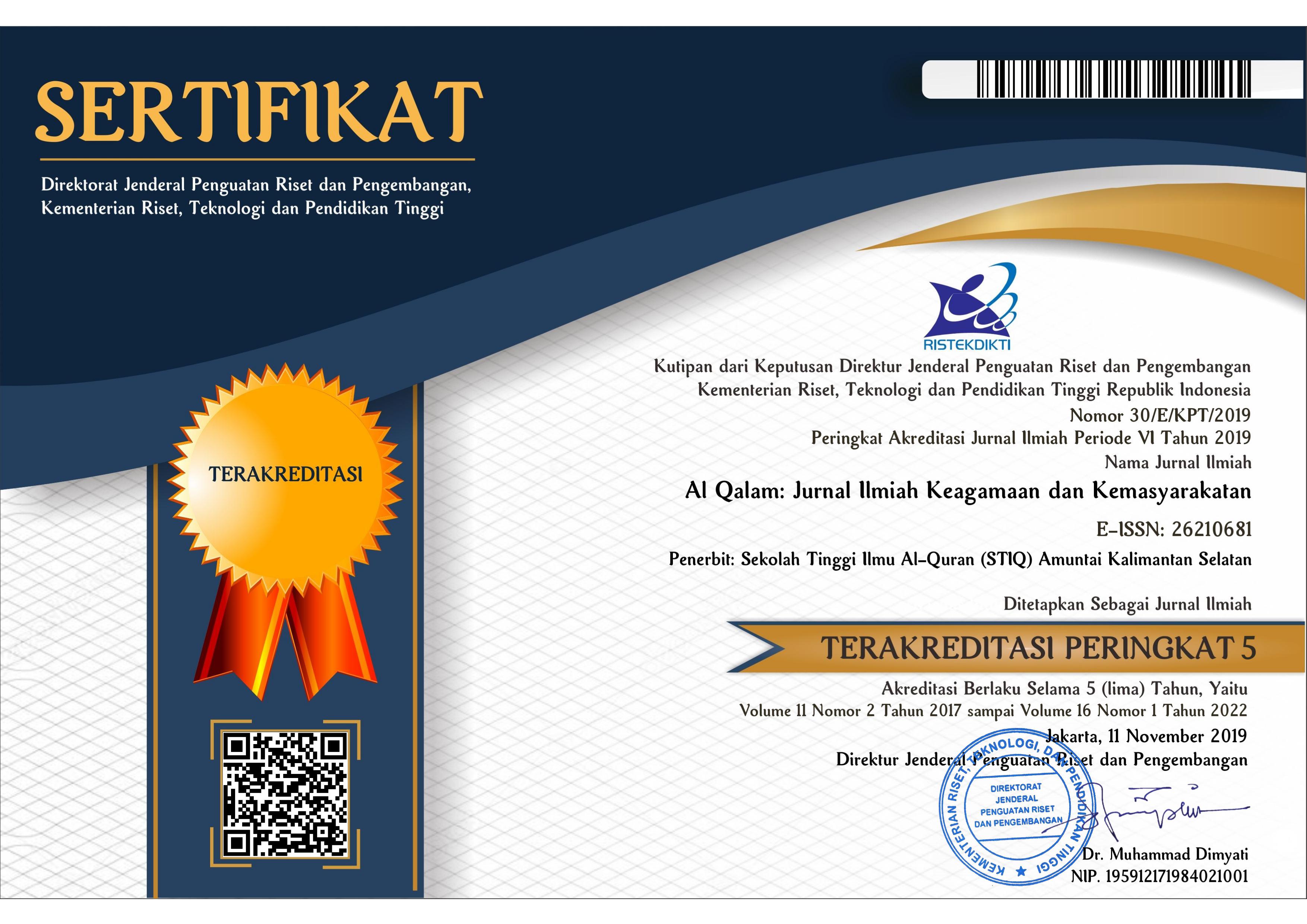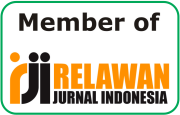Peran Perfeksionisme Maladaptif Sebagai Moderator dalam Hubungan Gaya Supervisi dan Supervisory Working Alliance pada Mahasiswa Magister Pendidikan Profesi Psikologi
Abstract
Keywords
Full Text:
PDFReferences
Bernard, Janine M., dan Rodney K. Goodyear. Fundamentals of clinical supervision. 6th ed. Fundamentals of clinical supervision, 2nd ed. Upper Saddle River: Merrill, 2019.
Bordin, Edward S. “A Working Alliance Based Model of Supervision.” The Counseling Psychologist 11, no. 1 (1 Maret 1983): 35–42. https://doi.org/10.1177/0011000083111007.
Chen, Eric C., dan Bianca L. Bernstein. “Relations of complementarity and supervisory issues to supervisory working alliance: A comparative analysis of two cases.” Journal of Counseling Psychology 47, no. 4 (2000): 485–97. https://doi.org/10.1037/0022-0167.47.4.485.
Cozolino, Louis. The Making of a Therapist. W. W. Norton & Company, 2004.
Devany, K. Peran supervisor self-disclosure dan metacommunication sebagai prediktor supervisory working alliance pada mahasiswa profesi psikologi klinis. Uninversitas Indonesia, 2020.
Efstation, James F., Michael J. Patton, dan CarolAnne M. Kardash. “Measuring the working alliance in counselor supervision.” Journal of Counseling Psychology 37, no. 3 (1990): 322–29. https://doi.org/10.1037/0022-0167.37.3.322.
Ellis, M. V., dan N. Ladany. Inferences concerning supervisees and clients in clinical supervision: An integrative review. Dalam C. E. Watkins (Ed.), Handbook of psychotherapy supervision. Hoboken, NJ: Wiley, 1997.
Enlow, Paul T., Linda G. McWhorter, Kimberly Genuario, dan Allyson Davis. “Supervisor–supervisee interactions: The importance of the supervisory working alliance.” Training and Education in Professional Psychology 13, no. 3 (2019): 206–11. https://doi.org/10.1037/tep0000243.
Friedlander, Myrna L., dan Linda G. Ward. “Development and validation of the Supervisory Styles Inventory.” Journal of Counseling Psychology 31, no. 4 (1984): 541–57. https://doi.org/10.1037/0022-0167.31.4.541.
Ganske, Kathryn H., Philip B. Gnilka, Jeffrey S. Ashby, dan Kenneth G. Rice. “The relationship between counseling trainee perfectionism and the working alliance with supervisor and client.” Journal of Counseling & Development 93, no. 1 (2015): 14–24. https://doi.org/10.1002/j.1556-6676.2015.00177.x.
Gnilka, Philip B., Kenneth G. Rice, Jeffrey S. Ashby, dan Randall M. Moate. “Adult Attachment, Multidimensional Perfectionism, and the Alliances Among Counselor Supervisees.” Journal of Counseling & Development 94, no. 3 (Juli 2016): 285–96. https://doi.org/10.1002/jcad.12085.
Gravetter, F.J., dan L.A.B. Forzano. Research methods for the behavioral sciences. 5th Edition. Cengage: Stamford, 2016.
Keum, Brian TaeHyuk, dan Lei Wang. “Supervision and psychotherapy process and outcome: A meta-analytic review.” Translational Issues in Psychological Science 7, no. 1 (2021): 89–108. https://doi.org/10.1037/tps0000272.
Ladany, Nicholas, Michael V. Ellis, dan Myrna L. Friedlander. “The supervisory working alliance, trainee self-efficacy, and satisfaction.” Journal of Counseling & Development 77, no. 4 (1999): 447–55. https://doi.org/10.1002/j.1556-6676.1999.tb02472.x.
Li, D. “Moderation Effects of Supervisee Levels on the Relationship Between Supervisory Styles and the Supervisory Working Alliance - The Professional Counselor,” 10 Agustus 2022. https://tpcjournal.nbcc.org/moderation-effects-of-supervisee-levels-on-the-relationship-between-supervisory-styles-and-the-supervisory-working-alliance/.
Li, Dan, David K. Duys, dan Yanhong Liu. “Working Alliance as a Mediator between Supervisory Styles and Supervisee Satisfaction.” Teaching and Supervision in Counseling, 2021. https://doi.org/10.7290/tsc030305.
Li, Dan, David K. Duys, dan Walter P. Vispoel. “Transitional Dynamics of Three Supervisory Styles Using Markov Chain Analysis.” Journal of Counseling & Development 98, no. 4 (Oktober 2020): 363–75. https://doi.org/10.1002/jcad.12339.
Lucock, Mike, Patricia Hall, dan Rachael Noble. “A survey of influences on the practice of psychotherapists and clinical psychologists in training in the UK.” Clinical Psychology and Psychotherapy 13, no. 2 (Maret 2006): 123–30. https://doi.org/10.1002/cpp.483.
Morrison, M. Ashley, dan Robert W. Lent. “The working alliance, beliefs about the supervisor, and counseling self-efficacy: Applying the relational efficacy model to counselor supervision.” Journal of Counseling Psychology 65, no. 4 (2018): 512–22. https://doi.org/10.1037/cou0000267.
Orlinsky, David E., Jean François Botermans, M. Helge Rønnestad, The SPR Collaborative Research Network, Hansruedi Ambühl, M. H. Ronnestad, John M. Davis, dkk. “Towards an Empirically Grounded Model of Psychotherapy Training: Four Thousand Therapists Rate Influences on Their Development.” Australian Psychologist 36, no. 2 (2001): 139–48. https://doi.org/10.1080/00050060108259646.
Pakenham, Kenneth I., dan Jeanie Stafford-Brown. “Stress in clinical psychology trainees: A review of current research and future directions.” Australian Psychologist 47, no. 3 (2012): 147–55. https://doi.org/10.1111/j.1742-9544.2012.00070.x.
Park, Eun Hye, Gyuyoung Ha, Sujung Lee, Yu Young Lee, dan Sang Min Lee. “Relationship between the supervisory working alliance and outcomes: A meta‐analysis.” Journal of Counseling & Development 97, no. 4 (2019): 437–46. https://doi.org/10.1002/jcad.12292.
Rice, Kenneth G., Clarissa M. E. Richardson, dan Stephen Tueller. “The Short Form of the Revised Almost Perfect Scale.” Journal of Personality Assessment 96, no. 3 (2014): 368–79. https://doi.org/10.1080/00223891.2013.838172.
Schultz, Jared C., Joseph N. Ososkie, Juliet H. Fried, Raymond E. Nelson, dan Achilles N. Bardos. “Clinical supervision in public rehabilitation counseling settings.” Rehabilitation Counseling Bulletin 45, no. 4 (2002): 213–22. https://doi.org/10.1177/00343552020450040401.
Stoltenberg, Cal D., dan Brian W. McNeill. IDM Supervision: An Integrative Developmental Model for Supervising Counselors and Therapists, Third Edition. Routledge, 2011.
Vidlak, N. W. Identifying Important Factors in Supervisor Development:An Examination of Supervisor Experience, Training, and Attributes. University of Nebraska-Lincoln, US, 2002.
Wahyudi, E. P. Peran kerendahan hati relasional sebagai mediator pada hubungan gaya supervisi dengan supervision working alliance. Universitas Indonesia, 2020.
Watkins, C. Edward. “The Supervisory Alliance: A Half Century of Theory, Practice, and Research in Critical Perspective.” American Journal of Psychotherapy 68, no. 1 (2014): 19–55. https://doi.org/10.1176/appi.psychotherapy.2014.68.1.19.
Wester, Stephen R., David L. Vogel, dan James Archer Jr. “Male Restricted Emotionality and Counseling Supervision.” Journal of Counseling & Development 82, no. 1 (2004): 91–98. https://doi.org/10.1002/j.1556-6678.2004.tb00289.x.
Wierda, K. Exploring interpersonal variables within the supervisory relationship: The role of supervisory alliance, supervisory style, and supervisee attachment. Western Michigan University, US, 2016.
DOI: http://dx.doi.org/10.35931/aq.v17i6.2832
Refbacks
- There are currently no refbacks.
Copyright (c) 2023 Hilma Ramadina, Imelda Ika Dian Oriza
Al Qalam: Jurnal Ilmiah Keagamaan dan Kemasyarakatan
index by:
Publish by:
Sekolah Tinggi Ilmu Al-Qur'an Amuntai
Contact us:
Address: Jl. Rakha Pakapuran, Amuntai Utara
Kabupaten : Hulu Sungai Utara
Kode Pos : 71471
Provinsi : Kalimantan Selatan
Telephone : 085251613000
Email: hafizhihusinsungkar@gmail.com

This work is licensed under a Creative Commons Attribution 4.0 International License


